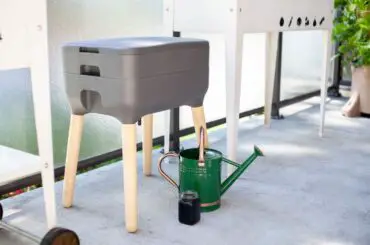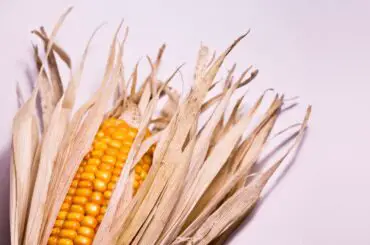Experts say compost is the most useful fertilizer in cultivation worldwide. Compost is made up of decayed animal and plant matter. This organic matter is rich in nutrients that are essential for plant development. Some animals, such as nematodes and various fungi, can improve the structure of the compost, allowing it to benefit more people.
Compost doesn’t go bad. But it can reduce its nutrient content and decompose its structure over time. As a result, you may not reap the full benefits of compost. But you can fix this. Let me explain this further.
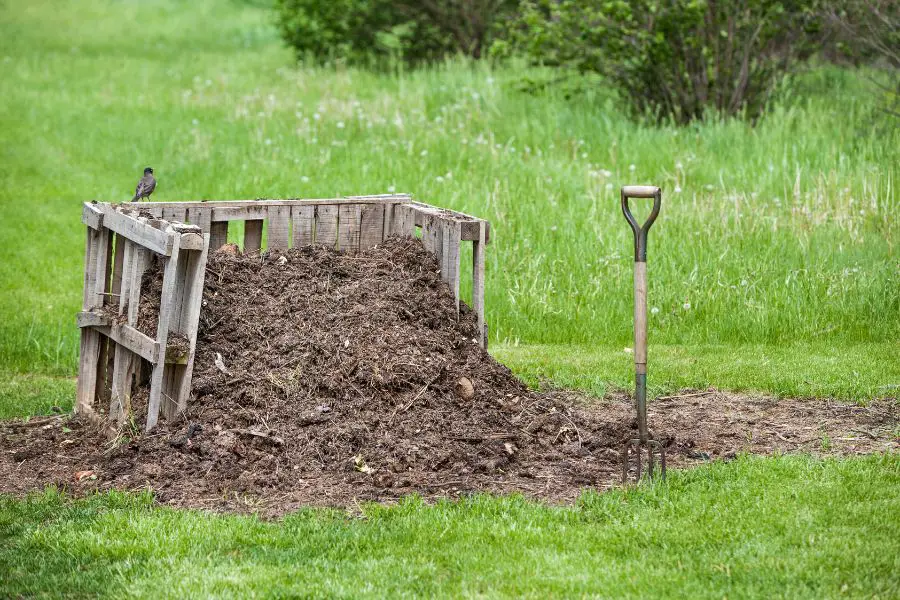
Does compost go bad?
Contents
- 1 Does compost go bad?
- 2 Does compost have a shelf life?
- 3 How long can you keep compost?
- 4 How can you tell if compost is bad?
- 5 Is it OK to use old compost?
- 6 Does finished compost go bad?
- 7 What will happen if you left the compost too long?
- 8 What should I do with old compost?
- 9 Does compost lose nutrients over time?
- 10 How do you fix rotting compost?
- 11 How often should compost be changed?
- 12 How often should you add compost to your garden?
- 13 Does bagged compost go bad?
- 14 Does mushroom compost go bad?
- 15 How long does compost last unopened?
- 16 Related questions
- 17 Conclusion on Does Compost Go Bad
The quality of compost depends on four factors. They are:
- The oxygen concentration: If the compost didn’t get the correct oxygen amount, the compost pile would make a bad odor and the compost layer would become thin in a low oxygen environment.
- The moisture content : If the compost does not get proper moisture it becomes dry and also makes a bad odor.
- Microbial activity
- Carbon nitrogen ratio- 2:1
If these parameters change, your compost might lose some of its nutrient content. However, by maintaining it, you can extend the life of the compost by about two years.
Does compost have a shelf life?
Yes, compost has a shelf life. If the compost is bagged compost, the maximum effect that compost can have will reduce after one year. After time passes, the quality of the nutrient content reduces and the damage to the compost structure increases.
The compost composition and storage method are critical factors in determining the compost shelf life. The oxygen concentration also affects the shelf life.
When compost is mixed with soil samples, microbial activity and worm activity increase, resulting in a lengthy fermentation period. The other factor is to add new feedstocks to the compost because if there aren’t any new waste things, the microbes couldn’t degrade them and the nutrient content will be reduced.
If feedstock and soil are added to the compost, it can last for about two years. The compost, which consists of bags, can last nearly one year. Once the compost bag was opened, its shelf life was reduced to six months.
The potting compost has a shelf life of about 6 months. When compost is added to the soil, the nutrient content of the compost is reduced. The compost starts to degrade and decay. But that added compost can enhance the quality of the soil, and it is also an advantage in gardening.
How long can you keep compost?
Normally, compost can keep for nearly one year, and this fact is common for both homemade and commercial composts. Then, after one year, the nutrition component amount, component structure, and microbial activity of compost get reduced.
To keep compost for a long time, the light condition, moisture, aeration, and temperature should be kept at appropriate levels.
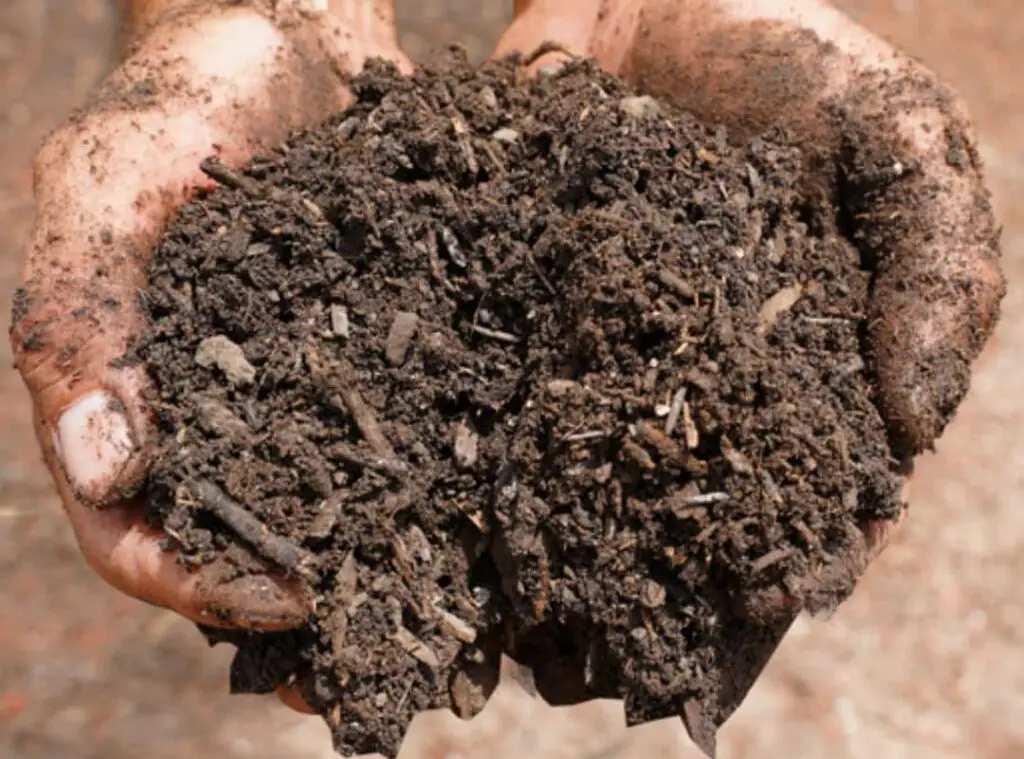
How can you tell if compost is bad?
“Bad compost” refers to compost that has expired or has been contaminated with toxic substances or chemicals. These toxic substances add to compost through printed papers, some wooden parts that are consistent with preservatives and the chemicals are such as chromium, lead, arsenic etc.
When considering the standard commercial manufacturing of compost, the toxic element level should be below the guideline levels. If not, that is considered bad compost too.
Because of a lack of microbial activity, bad compost smells like drain or is acrid. The best compost is a darker brown, almost black color. The bad compost is lighter in color.
When considering the texture of compost, the bad ones may consist of undegradable particles, while the good ones only consist of fine particles.
Is it OK to use old compost?
Old composts lost their nutritional amount, microbial activity, and structural composition. Yes ok. But you have to mix the old compost with a new compost sample, along with manure or other suitable organic matter, before you can effectively use them. Or you can add the old compost to the topsoil layer of the plants, and it will have more benefits for your plantation.
Does finished compost go bad?
Yes, finished compost go bad due to improper storage conditions, such as high temperatures and excessive dryness.
Finished compost has the following characteristics:
- Dark brown fine particles
- Crumbly texture and a
- pleasant or earthy odor
What will happen if you left the compost too long?
Compost consists of microbes, and there are microbial activities. If microbes don’t get favorable conditions like nutrients, moisture, and air, they cannot make compost, and compost production will reduce or stop.
When compost sits for an extended period of time without being added to or maintained, it begins to degrade and loses nutrients.
What should I do with old compost?
The old compost doesn’t contain a rich amount of nutrients, so it is not suitable for use. But you can add old compost to the topsoil layer of the plants. This layer can keep moisture in the soil, which will help plants grow better. This old compost also helps to reduce the growth of weeds.
Does compost lose nutrients over time?
Yes, compost loses nutrients over time, especially after four or six months. Due to microbial activity, the nutrients in compost break down into smaller molecules, and the function of compost is reduced or lost.
How do you fix rotting compost?
The compost rotted due to the slimy ingredients that we added to the compost bin. Some of these ingredients keep moisture for a long time, and this results in badly rotted compost.
Some vegetables, which naturally have high amounts of moisture, are another reason for compost to rot. The ingredients that are added to make compost can be divided into two groups. They are the “Browns” and the “Greens.”
The Browns are rich with carbon, and the Greens are rich with nitrogen. To reduce the rotting ability of the compost, the carbon and nitrogen ratios should be balanced, as well as the greens and browns.
If you add an excess amount of water to the compost, it also causes rotting. This problem can be resolved by making spaces in the compost and supporting the water drainage. The sawdust and straw like ingredients help to resolve these problems.
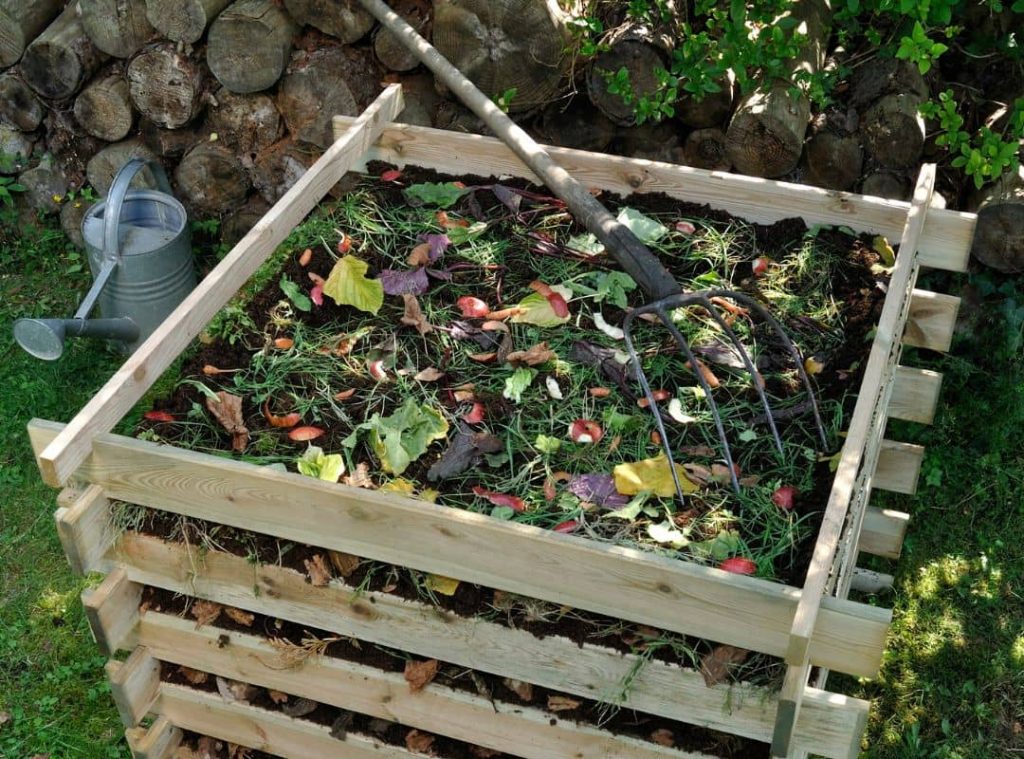
How often should compost be changed?
When considering the potting plants, the compost should be changed every six months to one year. The time depends on the size of the pot. If compost is added to large pots, the compost can keep for nearly one year, but if the pots are small, the compost changes within six months.
How often should you add compost to your garden?
The compost addition is necessary for healthy and successful gardening. Normally, when adding compost, you should add a thick layer of compost. The thickness should be about two to three inches. The thick layers help to prevent the growth of weed plants. According to the research, adding compost in the spring is appropriate. These methods are most suitable for homemade compost.
When using bagged compost, the compost layer thickness should be less than a home-made one, such as one to two inches. Not only at the above-recommended time period, but you can also add compost under the following conditions:
- Flowering season
- After soil eroded conditions like storms
- If the gardening place is warm
- If the soil look like sandy, clay or dense
When considering trees, you can add compost to them at any time. But it is better to add compost to the topsoil layer. A thin layer of compost, less than 12 inches thick, is sufficient for vegetables, and adding it a few times during the growing season yields the best results.
Some vegetables need more nutrients than other plants, so for that type of plant, we can create a monthly schedule and add compost. For flower plants, the compost can be mixed with soil and added to the top layer. The compost is added during spring, and a thick layer of compost is used. When the plant grows in a pot, the compost layer should be about one inch thick, and it is enough to add compost twice a year.
Does bagged compost go bad?
Studies show that bagged compost can last for about six months. This time also depends on the storage conditions and environmental conditions. If the conditions are favorable for compost, it can last for nearly one year. But when the compost bag is sealed, the compost can keep for some time longer than under normal conditions.
Does mushroom compost go bad?
Mushroom compost was used to grow mushrooms, but the compost was not made with mushrooms. These composts consist of organic compounds. Yes, mushroom compost is also getting bad. But you can keep them for more than one year.
How long does compost last unopened?
The duration of unopened compost also depends on the environmental and storage conditions. If the correct conditions are maintained, the compost sample can last for several years. But if the compost lasts for a few years without being damaged, the volume of compost reduces over time.
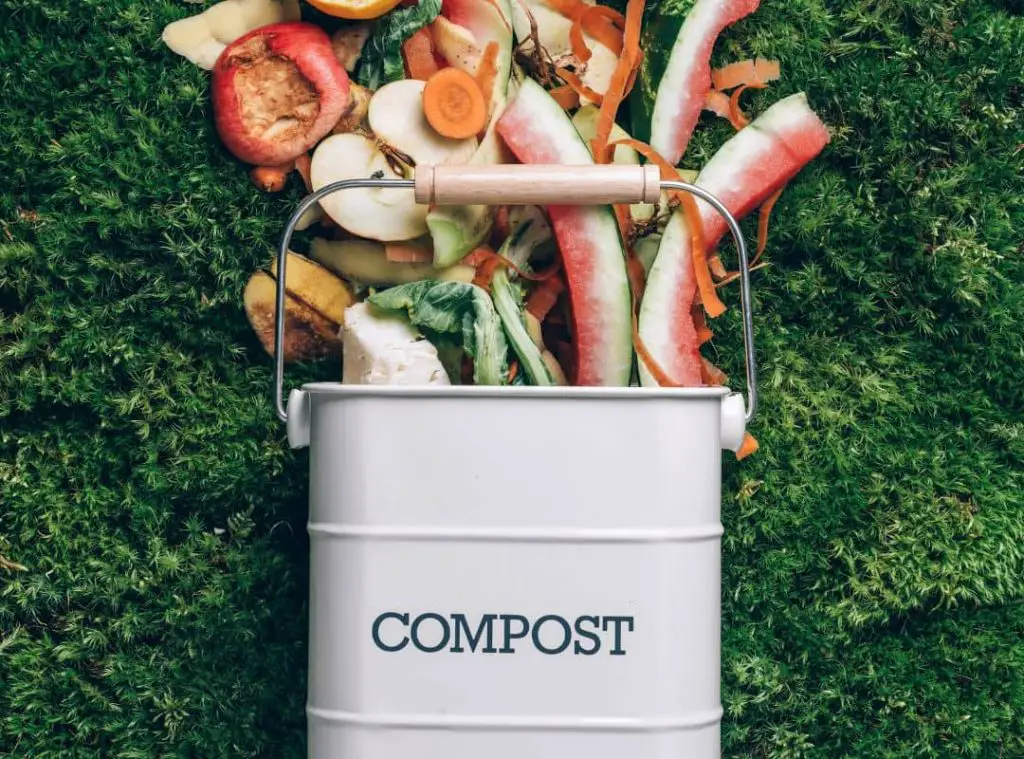
Related questions
Why has my compost gone white?
Some fungus or mold types can grow on compost, and these can be observed in white. The white color occurs due to the growth of mycelium. When mycelium grows on compost, the compounds are breaking down properly. This is an advantage for you and does not harm your compost and cultivation. Fungi are not the only reason for compost whitening; there are also some bacterial species responsible for this phenomenon.
Is it okay for compost to mold?
Yes, growing mold on the compost sample is acceptable because molds aid in the compost’s decomposition process. Molds, in particular, aid in the breakdown of cellulose. Therefore, this can be considered an advantage.
When molds grow on the compost, the sample should be mixed evenly and regularly for better results. To reduce the growth of molds, it is necessary to reduce the amount of moisture in the compost. The other condition that is needed for mold to grow is warmth.
However, allowing mold to grow too much can disrupt the system and have a negative impact on compost and its texture.
Are ants OK in compost?
Under normal conditions, some animal species, like worms and insects, are attracted to and live in compost. These species help to improve the aeration of compost and the composting process, too. Ants also aid in nutrient redistribution.
Some ant species, like army ants and Carpenter ants, attack worms in compost, but not all the ants, and we should be more careful about these kinds of ants. The above-mentioned ant types can attack the other beneficial species in compost, and some are attacking plants too.
Will compost attract rats?
Normally rats, like rodents, attract compost because the waste material we use for compost is a food source for rats. And also, the covered, humid, and warm environment attracts rats to make their home in your compost bin or pile.
Rodents like rats are not beneficial animals for composting. They can also harm your compost and compost bins. They also act as disease carriers.
Conclusion on Does Compost Go Bad
Compost needs better and proper environmental conditions to maintain its quality. The oxygen concentration, microbial activity, moisture content, and carbon: nitrogen ratio are also important for maintaining compost quality for a long time.
Compost has a shelf life, which depends on the storage conditions, and the shelf life varies from six months to one to two years. After the recommended time period, the compost composition and better compost activation changed.
After the compost time period has expired, they cannot be used directly as compost, but you can add them to the topsoil layer of your cultivation. This also has some benefits for the plants.
Compost preparations include bagged compost, mushroom compost, potting compost, and others. Compost can turn white easily due to the fungus activity. This whitening may occur due to bacterial activity, too. This whitening is not damaging to compost, and it is beneficial for compost.
There may be some ant types and worms in the compost pile, and this incident is also normal and beneficial. But some ant types, like army ants, may attack worms in compost, and that could be a disadvantage.
The rodents tend to attract themselves to the compost pile due to waste food materials and warm conditions. These animals can damage your compost bin or pile and can carry diseases that are very harmful to humans.
Read Next : Is Horse Manure Good For Clay Soil? Benefits And Drawbacks
Read Next : Does A Compost Bin Need A Bottom? (Answer Is Here)

